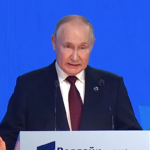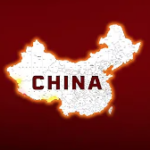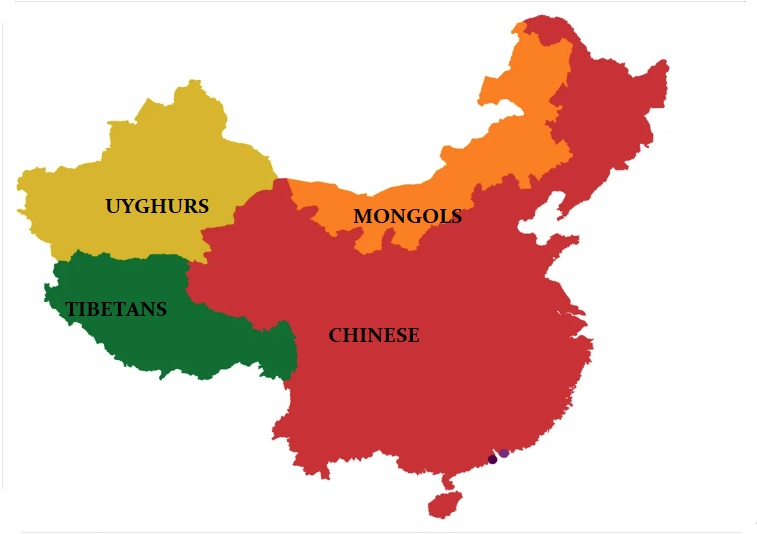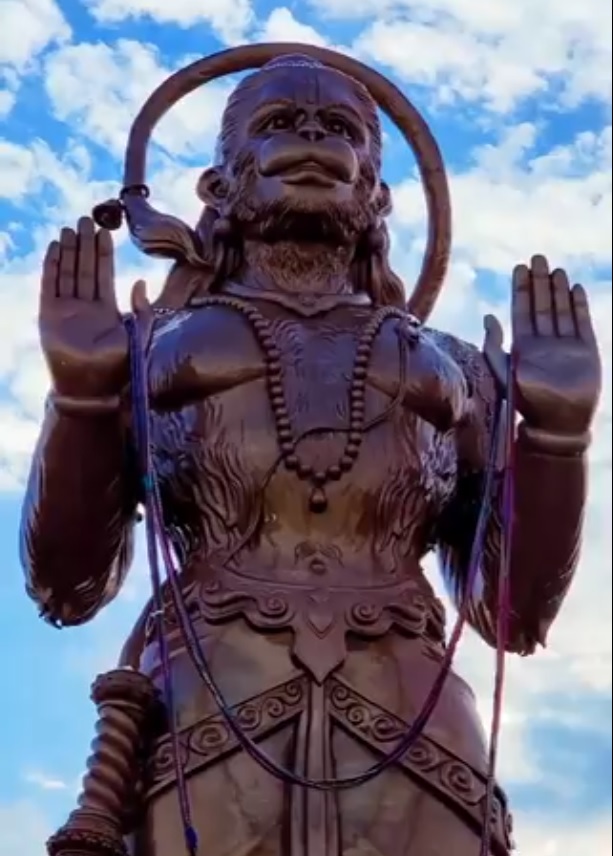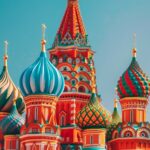A few days ago Die Welt held a TV duel between Alice Weidel, one of the leaders of the Alternative fur Deutschland, and Sahra Wagenknecht from her own political movement: Bündnis Sahra Wagenknecht. All Germany is said to have been excited about the event and commented on it afterwards. The moderator – i.e. “a person whose job is to make sure that a discussion or a debate is fair” (an Oxford dictionary definition of the meaning of the word) – did his best to make the debate hard to follow and unpleasant to listen to with all his frequent interruptions and an evident bias against Alice Weidel. But then nothing new under the sun: such debates are held not to help the viewers to form an opinion, but to convince them who is the bad and who is the good guy. But we digress.
There were five topics: 1) Israel, 2) Ukraine, 3) economy, 4) the United States, and 5) immigration. We are not going to cover all the topics nor evaluate which of the women appeared better: all this has been discussed by many media outlets, and the consumers of those media will mostly adopt the evaluation offered to them by the journalists rather than rely on their own senses, but then there you have it.
What we are going to do here is to say a few words about the topic of immigration or rather about what was not said during the duel. Alice Weidel represented that political movement that would like to reduce, stop or even reverse immigration, while Sahra Wagenknecht, although speaking also in favour of reducing or controlling the influx of settlers, was more reserved and – typically for any leftist politician – defended the “rights of the poor people.” What the two women said about immigration was nothing new, as already mentioned. Yet, one invariably wonders why the party that is against uncontrolled immigration or against immigration at all does not roll out the simplest arguments to support their political stance. These are the following:
① A nation – in this case Germans – has the right not to want to see strangers in their own country, just as an individual or a family has the right to have his home for himself, for his family.
② “New” Germans are false Germans or are Germany’s fair-weather friends (if they are friends at all, which in many cases is evidently not true): they have left their own nations in need and have adopted a new national identity only because of material gains. That means that once Germany finds itself in serious trouble they are going to leave for a country with “fair weather.”
③ The argument that Germany needs skilled workers and educated people (we disregard the fact that it is mostly unsklilled and uneducated people that arrive) is another term for exploitation of other nations, of other countries; rather than colonizing a Third World country and despoiling it of its material resources, Germany is going to despoil Third World countries of their best human resources (assuming still that it is the skilled and the educated that immigrate to Germany), thus making it hard or impossible for those countries to ever elevate themselves economically, which is going to generate new waves of “poor” people who will decide to leave for Europe.
④ No political party raises the demographic problem: why not encourage native Germans to have children and thus provide labour for the economy (again assuming that it is labour that the importers of humans are after)?
⑤ The idea that a tiny country like Germany can save the world from poverty and war and exploitation by accommodating even a few million people is ridiculous at best and downright foolish at worst; Africa’s population is booming and exceeding a billion while the economic and political problems are multiplying: there will never be an end to wars or economic crises. Besides, an attempt to save the global population (billions of people) by a tiny Germany (or other European country) is as absurd as the idea of saving the planet in that the same tiny Germany shuts down its power houses operating on coal or uranium.
⑥ We cannot talk about a German nation the moment there are millions of Poles, Turks, Serbs, Croats, Afghans, and members of the many Africans tribes; we cannot talk about German culture or heritage the moment there is a myriad of faiths and creeds, a myriad of cultural codes inside the country, apparently mixed as if in a cauldron, actually living in parallel worlds.
⑦ If Germany feels threatened by Russia (or any other state for that matter) as it is often said, then it needs a patriotic, cohesive society. Is there anyone so gullible as to think that a Nigerian or an Afghan is going to fight for Germany? Is that the reason why this Nigerian or that Afghan has left his own country in need and settled in an affluent Germany? Have all those Turks and Poles and Croats and, and, and come to Germany to fight for it and risk their lives?
⑧ No one dares to point to mental or – if you will – psychological differences between the human biological types, differences that are congenital. Congenital differences cannot be changed, and as such they will always cause unsolvable societal tensions that will erupt in deep divisions and – ultimately – civil war.
These are valid arguments against immigration.




